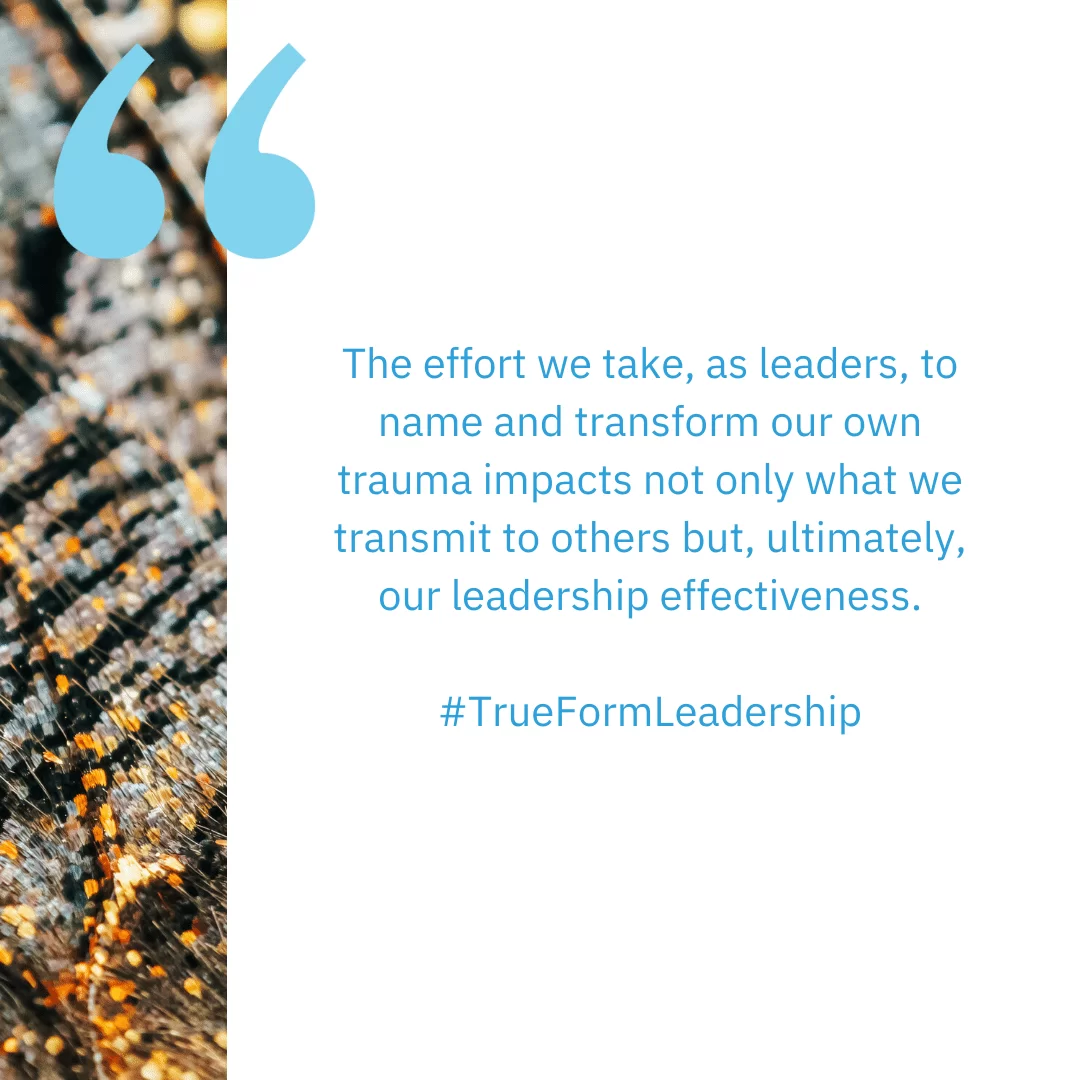Transforming Leadership, Transforming Trauma
Leadership shortcomings highlight our reactive tendencies, those go to modes of operation that have become hardwired in our system from our most profound adversities.
Recently I attended Moving The Human Spirit’s inaugural course in trauma informed coaching. As an organization whose primary focus has been supporting first responders, there was curiosity in the room about what attracted an executive leadership coach, like myself, to the training.
It’s true, the executives I coach are not generally racing into burning buildings to save children or under the daily risk of losing a partner in the line of fire. At the same time, acute stressors can be present in their lives. Disruptions such as a looming bankruptcy, the sudden death of a key employee, or the loss of a major contract can trigger traumatic responses as can more personal issues like the death of a child, the sickness of a spouse, or the loss of a home.
Trauma knows no bounds.
As an executive coach, however, I find it’s the developmental, or chronic, traumas that often lie more deeply hidden and underpin leadership struggles. These are the adverse experiences and challenges that, overtime, build belief systems which get in the way of fully realizing your potential as a leader.
Beliefs that spin the hamster wheel of rumination in your mind that keep you from fully appreciating and relaxing into your success.
Beliefs that fuel the clench of perfectionism and control that drives your hypervigilant goal focus.
Beliefs that block you from fully trusting and actively engaging your team.
Years ago I heard Dr. Robert Anda, one of the original researchers on the Adverse Childhood Experiences (ACE) study, speak at a program hosted by Bester Community of Hope, a local organization focused on supporting impoverished communities.
Anda’s 1994 study found exposure to addictions, domestic violence, and mental illness, as well as various forms of abuse and neglect, impact us in profound ways. While initial impacts are in a child’s neurological development, ACEs drive more long-term issues in social, emotional, and cognitive functioning. People with higher levels of ACEs tend to have greater relationship struggles and health challenges. What can compound, and confound, the issue is the role of epigenetics, as studies are showing we are not only subject to the impact of our own ACEs, but also those of our parents and ancestors.
ACEs are common. Two-thirds of these original participants reported at least one adverse childhood experience.
What woke my curiosity that day was hearing that the original ACE study wasn’t performed in an impoverished area, like Bester. It was done in San Diego – a community full of sunshine, great jobs, and excellent health care. These participants were primarily well-educated, middle to upper middle class, white collar professionals, managers, and leaders of organizations.
I’ve worked with these people.
I’ve lead these people.
I’ve coached these people.
Heck, I AM these people.
Again, trauma knows no bounds. And, unfortunately, achievement and success can mask underlying pain in such a way that it festers and continues to hold power over us.
Richard Rohr, and just about every great wisdom teacher in their own way, has said “Pain not transformed is transmitted.” Executives, entrepreneurs, CEOs and, really, leaders of all kinds have enormous reach and thus enormous ability to transmit pain – onto their employees, their clients, their families, their community stakeholders, and their environment.
I sat back in my chair and scanned the leadership struggles I had throughout my career. The links between these issues and the beliefs formed in my own adverse experiences began to come into focus. And, in those clients that are looking to take the deeper dives into their own leadership struggles, this is often what’s uncovered as we work to release the grip of belief systems that are no longer of service.
Having the courage to finally name it holds much power in transforming it.
While Moving the Human Spirit’s course presented me with a rich trauma-informed lens to add more depth and breadth to my coaching practice it, of course, didn’t answer all my questions. As all good training does, it stirred up deeper curiosities around how trauma impacts leaders and, most importantly, how we can leverage these experiences to cultivate our own growth and wisdom.
In your leadership journey, what self-limiting assumptions grip you and underpin your own hard-wired reactive modes of operation?
I know this isn’t the easiest question to answer. Clients work in coaching programs for months, and sometimes years, to gain clarity around their internal drivers and belief systems. Often, the answers that first arise are just the top layer of what can morph into lifelong inquiry.
It’s important work. The effort we take, as leaders, to name and transform our own trauma impacts not only what we transmit to others but, ultimately, our leadership effectiveness.


